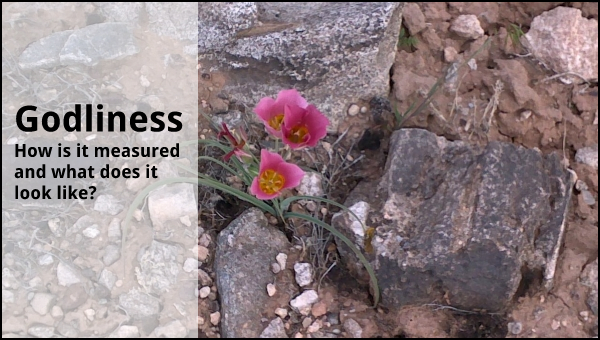By Tyson Thorne

At a public debate among those running for Student Body President one candidate attempted to make “Unity” his platform, saying at one point, “Our student body needs more unity.” A quick-witted reporter for the campus newspaper asked an insightful question, “How much do we have now? And if I may follow-up, how much more do we need?” The question reveals that we have no measure for unity, no way to quantify it. There is no spectrum of unity; it is something you have or do not have. Can the same be said of godliness? Not according to Paul.
The apostle Paul is clearly one of Christianity’s greatest thought leaders, a man who turned from rebellion against God to become a faithful and active servant. Most of Luke’s book The Acts of the Apostles chronicles Paul’s missionary journeys and accomplishments, and Paul himself wrote roughly two-thirds of the New Testament. Besides our savior, who but Paul could be described as the most “godly”? Wouldn’t it be great if we could know what qualities Paul respects in others, what kind of people he considers to be godly? We can.
In the next-to-last letter he would ever write, Paul provides instruction to his faithful disciple and spiritual son (Titus 1.4), Titus. Following the opening remarks Paul reminds Titus of his mission to find and appoint elders of the churches on Crete. To aid him in the search for qualified candidates, Paul lays out a few things to look for in an elder; these are traits that Paul himself admires and sees as indicators of spiritual maturity and godliness. Here’s the bullet points:
- An elder must be blameless
- Must have been married only once and devoted to his wife
- Whose children (if he has any) are respectful and not rebellious
- Not arrogant
- Not prone to anger
- Not a drunk
- Not violent
- Not greedy
- Must be hospitable
- Must be devoted to doing good
- Must be sensible
- Must be upright
- Must be devout
- Must be self-controlled
- Must be faithful to the pure gospel message
It’s an impressive list, and I find it troubling that there are many pastors in pulpits around the world who do not meet these qualifications. It may not be politically-correct to say so but these verses have implications regarding divorce, substance abuse, psychological disorders and more. We’ll leave that discussion for another time. One of the things that strikes me, however, is what is not on the list. Are there no requirements for how many prayer breaks the man should take each day? How many hours should he read the Bible? How many books does he read in a year? Do his sermons make you laugh and feel good?
In the days to come we’ll explore these traits of godliness, and their implications.
|
|
